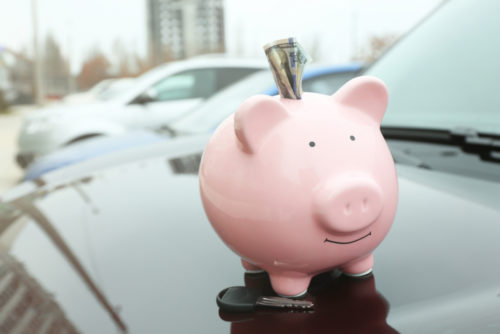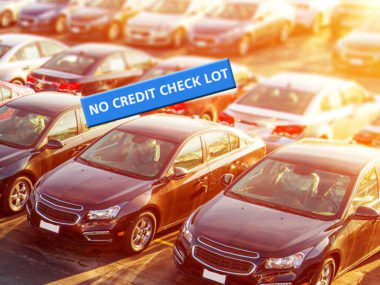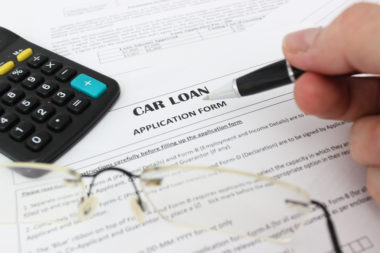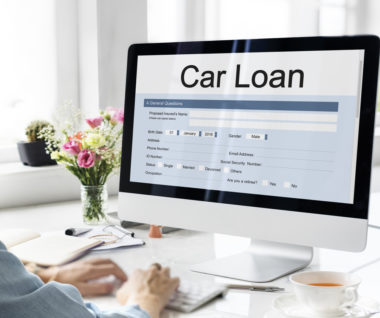Leasing a car is a popular alternative to buying one. Instead of paying the full sticker price, you’ll just pay for the depreciation. However, if you still can’t afford your monthly payment, or need better lease terms, you might be wondering if you can refinance a leased car.
You can refinance your car lease, but it is important to understand that it is not the same thing as refinancing a loan. When you refinance a car lease, you are taking out a new loan equal to the car’s value and making payments towards that new loan.
You’re making a lease/loan replacement. Lease replacement could offer many of the same perks as refinancing: a lower monthly payment, shorter loan term, or just better terms overall.
Read on to discover the ins and outs of refinancing a car lease, as well as other options you may consider to help lower your monthly costs for your car lease.
Table of Contents
How Does Refinancing a Car Lease Work?
Lease replacement is a more apt term than lease refinancing. Refinancing requires a loan, and you’re more likely just going to replace your current lease with a different one. When you refinance a car lease:
- You ask for a loan for the payoff amount for the car.
- Once the loan is secured, you purchase the vehicle.
- You make payments on the new loan.
When you refinance a car lease, you are no longer subject to the terms or fees of the original lease that may include:
- Mileage fees.
- Maintenance fees.
- Wear and tear fees.
- Lease cancellation fees.
However, if you refinance too early, you may be subject to an early termination fee. The length of your lease was negotiated when you first leased it, and sometimes there is a penalty for turning in the car early, even if you pay off your balance. Compare this potential fee with any costs saved from your lease replacement.
Can I Lower My Current Lease Payments?
Once a car lease has been signed, you cannot renegotiate the terms for a lower monthly payment as you may be able to by refinancing a car loan.
If you cannot make your monthly payments, you may be able to appeal to the leasing company by explaining your financial hardship. The leasing company might allow you to delay payments, but will not lower your monthly payments.
If you need lower monthly payments, you will need to break your contract or refinance your lease to get a more affordable payment.
How Soon Can You Refinance a Car lease?
Technically, you can refinance the lease at any time as long as there is no provision against a buyback. You will need to check your lease contract for any specifics. You may refinance as long as you can either afford to pay off the vehicle with cash in hand, or you can secure a loan to pay the lease off.
As previously stated, you will also need to account for any early termination fees that you may be subject to by refinancing and compare the cost of these fees with what you may be saving in monthly payments after refinancing.
Disadvantages of Refinancing a Car Lease
There are advantages and disadvantages to buying versus leasing, but refinancing a leased car offers an additional downside.
Refinancing a car lease may also mean that you are subject to additional fees that may include:
- Expensive early termination fees, and/or additional fees that were written into the lease.
- Paying state taxes on the vehicle.
- Paying any transfer costs or purchase costs.
- Your new loan may have a higher interest rate.
- You could end up with an upside-down car loan.
Leasing a car consists of making payments against the depreciation during your term. If you refinance or replace your lease, you’ll likely lose out on the money that you already paid into the car, since it is still depreciating. You might have to pay for the depreciation even after your return or trade out the car, depending on how quickly it depreciates and the terms of your lease.
How to Refinance a Car Lease
If you choose to refinance your car lease, you will need to complete the following steps.
Review Your Lease Agreement for Payoff Terms
Examine your lease agreement for the payoff information. If you cannot find it, the dealership you leased it from will be able to tell you. You need to know about any early termination fees, as well as the total price of the car itself.
Additionally, the total payoff cost will change as time goes on, so keep that in mind if you’re planning on replacing or refinancing the lease in the future. The number you calculated a few months ago might not be accurate anymore.
Negotiating the Payoff Amount
You may, or may not be able to negotiate the payoff amount. This will depend on the company you leased from and any “no negotiation” rules they have set in place. However, some companies may be willing to negotiate the payoff amount to avoid having to sell the vehicle to a dealer or an auction.
To negotiate the payoff amount, you will need to know the finer details of the value of the car to negotiate the best price. To do this you will need to look up the vehicle value by using tools such as the Kelly Blue Book Calculator. You will then compare the car’s buyout price to the fair value price of the vehicle.
The equity you have in the vehicle may cause the fair value price to be higher than the buyout price. If this is the case, the leasing company will likely not negotiate.
If the fair value price is less than the buyout price, you may be able to negotiate a buyout. You might have more luck in the negotiation process if you are near the end of your lease, or if the vehicle is an older model. However, it never hurts to try and get a better deal.
Shop Lease Refinance Lenders
You’ll want to shop around to get the best terms on the new loan to refinance the car. Different credit unions, banks, dealerships, and refinancing networks can give you various options. Approach them with your payoff amount and some basic information about your car, including its make, model, and mileage. After that, it’s just a matter of negotiation and choosing whichever lender offers you the best deal.
Sign Lease Agreement With New Lender
Review all the terms closely. Generally, refinancing a leased car isn’t in your best interest, unless you are interested in outright owning it as soon as possible. If you need to renegotiate the terms of your monthly payment or lease term, replacing your lease with a different vehicle may be a better alternative. In either case, you’ll want to make sure that all the terms of your new agreement do leave you in a better financial position.
Should You Refinance Your Car Lease?
Refinancing your vehicle can be a great option, but it depends on your financial situation. If you have good credit and can obtain a loan with better terms and a more affordable monthly payment, refinancing your car lease may be right for you. It can also be a great option if you already have equity in the vehicle and/or you can negotiate for a lower payoff amount.
Alternatives to Refinancing a Car Lease
If you are experiencing financial difficulty with paying your car lease and you can’t get a loan to refinance, there are a few options and alternatives available to you. These alternatives include:
- Transferring your lease. Some leasing companies may allow you to transfer your lease to a new lessee. To do this, you may be required to pay a transfer fee and the new lessee will need to meet the lease qualifications.
- Return the car and lease a different vehicle. Depending on the leasing company and agreement, you may be able to return the vehicle and lease another one from the same company with no termination fee.
- Lease pull-head. If you are near the end of your lease term, you may be able to skip your last few payments on your current lease and lease a different car from the same company.
- Pay a lease termination fee. This option should only be considered as a last resort. Lease termination fees are often extremely high, sometimes nearly equating to the value of your remaining monthly payments.
- Buy the vehicle. If possible, you may be able to purchase the vehicle outright without having to refinance and get a new loan. If buying out the lease of the car is possible, you may be able to sell the car to a dealer or private party.
- Dealership buyout. In some cases, you may be able to have the dealership buy out your lease if you are near the end of your contract. This is usually only available during the last six through 12 months of your lease. This option typically only works if you are going to purchase another car with the same dealership so you can obtain a more affordable vehicle.
Deciding between refinancing the lease of your car or choosing an alternative solution will depend on your current financial situation, as well as your future financial strategy. Before making any decisions, revisit or construct your budget and take an inventory of your debt-to-income ratio to see what you can afford.
It’s also helpful to weigh all your options to see what types of loans you may qualify for in order to refinance, or what type of offer the leasing company may have for someone in your situation.
Refinancing a Car Lease With Bad Credit
It may be more difficult to refinance your lease if you have a fair or poor credit score, but it can still be done. After obtaining the buyout amount for the car, you will need to find a lender willing to work with you that specializes in loans for bad credit.
When looking for lenders, you will want to ask what their credit score requirements are and if they accept lease buyout loans.
Just the same as those that have great credit, you will want to comparison-shop the loans that are available to you. Sourcing out as many quotes as possible provides you with the flexibility to choose the best option for you, allowing you to make the best financial decision when refinancing the lease on your car.
Image Source: https://depositphotos.com/





